Regional French: Expanding Your Vocabulary With Regional Words
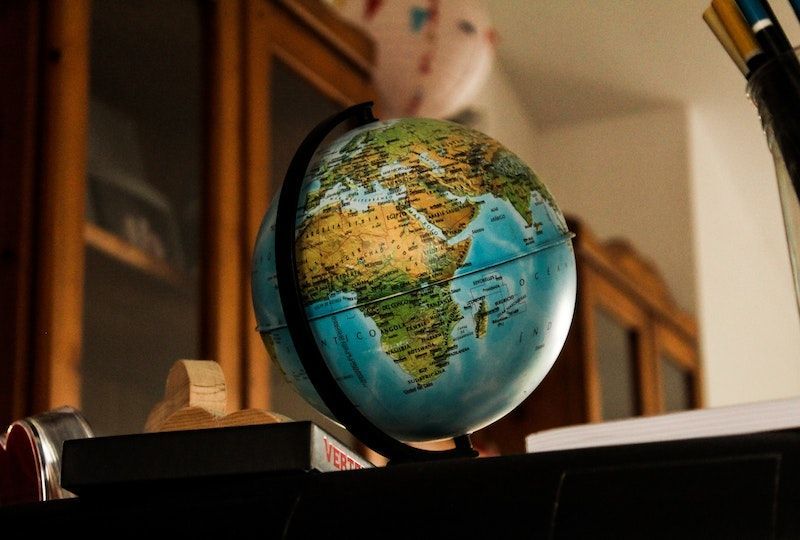
Like English, Spanish, and most other languages, French is not a perfectly uniform language. While the basics may be similar and the bulk of French vocab will be the same, every French-speaking region has its own unique flare that sets it apart from the others.

Why Learn Regional French Words?
As a French learner, it can be both stressful and fun to learn about these regional words. Fortunately, you don't need to know all the words that are unique to every region. Just knowing a few regional French words will help improve your French comprehension and help you feel that much more fluent when you travel through the Francophone world.
If you're already feeling overwhelmed with standard French, don't worry! You don't need to know these regional words to be understood. This is just a little look into the unique cultures and regions that share the French language.

Each French-Speaking Region and Their Unique Vocab
France
Yes, even the French spoken in France can differ depending on where you are in the country. Sometimes it only differs slightly, but other times the words may not even resemble themselves.
We'll start off nice and simple then work our way up. If you want to see a map, here's an article that divides France according to each region's unique vocab.
Pain au chocolat vs. Chocolatine
This tasty treat is the subject of many a battle in France. While most of the country refers to the chocolate croissant as a pain au chocolat, there's a small majority in the south-west that call it a chocolatine.
Carafe vs. Cruche vs. Pichet vs. Pot d’eau vs. Broc
If you try to order a pitcher of water in French, prepare for the waiter to say one of five words: carafe, cruche, pichet, pot d'eau, or broc. You'll get the same thing, but depending on where your waiter is from and what region of France you're in, the word you hear may be very different.
Serpillière vs. Toile vs. Sinse vs. Wassingue
In French, you may hear the mop cloth referred to as a serpillière, toile, sinse, or wassingue. Most tourists don't need to know this, but if you plan on living in France for a little bit or need to clean up a mess, just use whichever word comes to mind first. In most of France, the word used is une serpillère.
Mamie vs. Mémé vs. Mémère
What do you call your grandmother? In France, you can choose from any of the nicknames above. They essentially translate to Grammy, Nana, Granny, or Grandma. Most of France will say mamie or even mémé, but you will also commonly hear mémère.
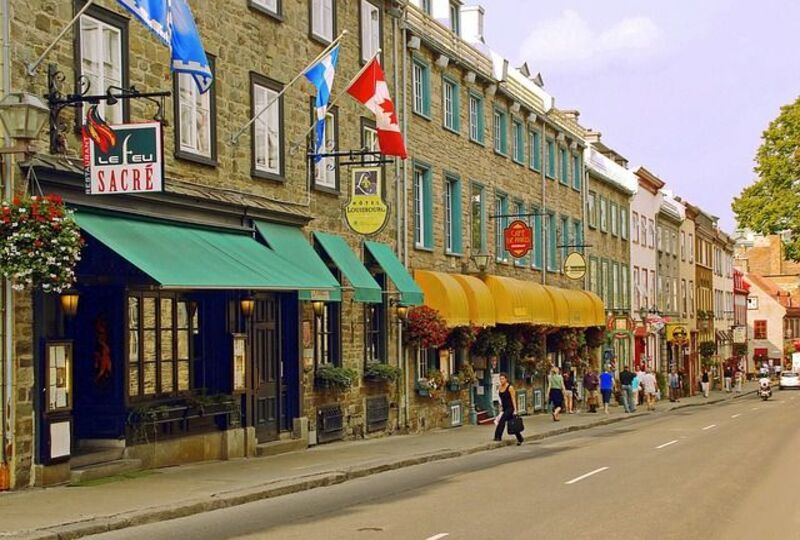
Canada
Every French language learner knows that Canadian French is just a little different. The Quebecois accent is a challenge all on its own, but Canadian French also uses slightly different everyday vocab than standard French might. Quebecois also has some peculiar French sayings, so if you plan on visiting the province anytime soon, you might consider brushing up on the common idioms below.
Avoir mal aux cheveux
After a night of partying in Montreal, you may find yourself saying j'ai mal aux cheveux. While this literally translates to "My hair hurts", it's used to mean "I'm hungover".
J’ai mon voyage
When you've had enough in Quebec, you say J’ai mon voyage in French. It's the exact same as j'en ai marre in standard French.
Just a heads up: j’ai mon voyage is not used in the sense that you've had enough to eat. It's used to express irritation or when you're fed up with something.
Jaser
This French word means to chat with someone, but not online. If you jase with someone, you're probably just standing on the porch or sitting in a cafe. It's used to reference face-to-face conversations, but is unique to Canadian French.
Un char
Similar to the English word "car", un char means car (or voiture) in Canadian French. You can still use voiture, but you'll most likely hear Quebecois speakers use char instead.
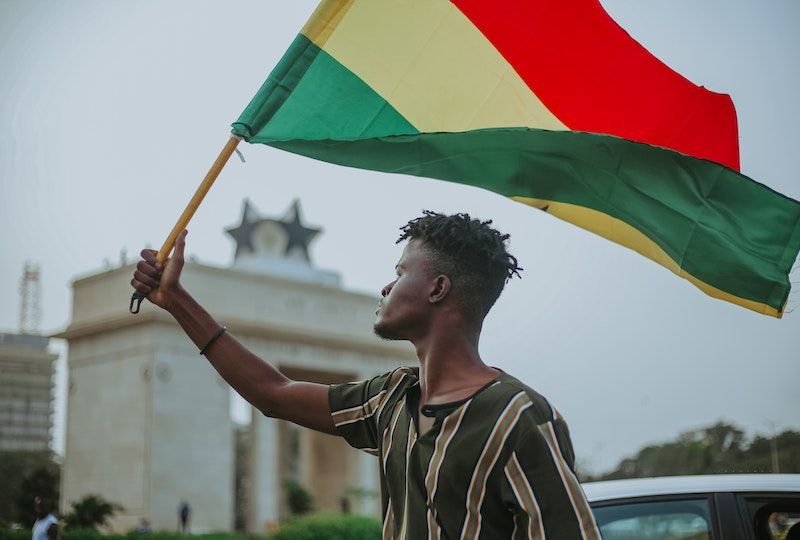
French-Speaking Africa
A lot of new French learners don't realize it, but French is a dominant language in Africa. As much of Africa was colonized by France, many people learn French in schools and as a second language. The accent is different in each country and the local language (usually Arabic) has heavily influenced the language, but standard French can help you get around the continent.
African French has a lot of unique grammar and vocab, so for a more in-depth look at it, check out this article. To just get a feel for the uniqueness of this Francophone region, take a look below.
Doigter (Benin)
French is the only official language of Benin so you shouldn't be too surprised to hear the country has created some unique words in the language. The verb doigter, for example, means to point out and comes from the French word for finger: doigt.
Casser le bic (Kinshasa)
In the Dominican Republic of Congo, you'll find the city of Kinshasa which is the largest French-speaking city in the world. Here, you'll hear many unique words and phrases, such as the phrase casser le bic which means to quit going to school.
Merci mingi and Ça ne dérange pas (Kinshasa)
To say merci beaucoup (thank you very much) in Kinshasa, say merci mingi. It comes from both standard French (merci) and Lingala (mingi).
Another way to say "thank you" is ça ne dérange pas. This can also mean "you're welcome". Be careful when using ça ne dérange pas outside of Kinshasa, though, as many French speakers may find it offense. After all, it does translate to "It doesn't bother me" or "I don't mind" and when used to mean "thank you", it can sound rude.
Le pia (Abidjan)
In Abidjan, you'll find that anywhere from 75-99% of the population speak French as a first or second language. You'll also find that their word for money (une pièce) is different: un pia.
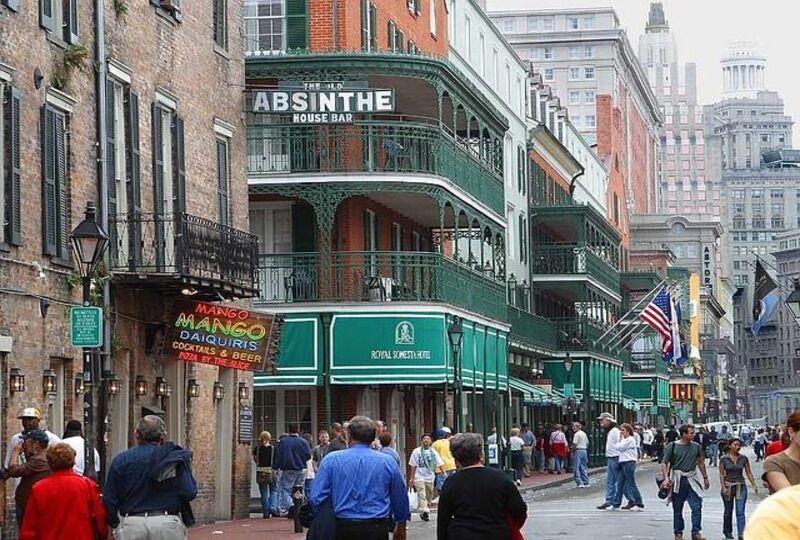
Louisiana
French language learners may be surprised to learn that French is spoken in the deep south of the United States. In the state of Louisiana, mainly in and around the city of New Orleans, people speak a version of French and French creole that is often called Louisiana French.
Here are some fun, unique words that Louisiana French speakers use, but that you'll also hear spoken by English speakers in the area.
Couyon
In Louisiana French, a couyon is a foolish person. You can use it in English or in French, but only the locals will know what you're talking about so don't try to use it elsewhere.
Cher [shaa]
The word cher is pronounced like [shaa], despite what many French language learners may think. It's a term of endearment that means "dear" or "sweetie".
Veiller
This French verb translates roughly to spend the evening talking. If you veille with your friends, you may be sitting out on the porch late into the night. While you don't have to specify "with my friends" (avec mes amis), it's typically understood to mean that.
Drette-là, asteur, and asteur-là
To say "right now" in Louisiana French, you can use drette-là, asteur, or asteur-là. All three mean "right now" (maintenant, tout de suite), but they aren't used anywhere outside of Louisiana.
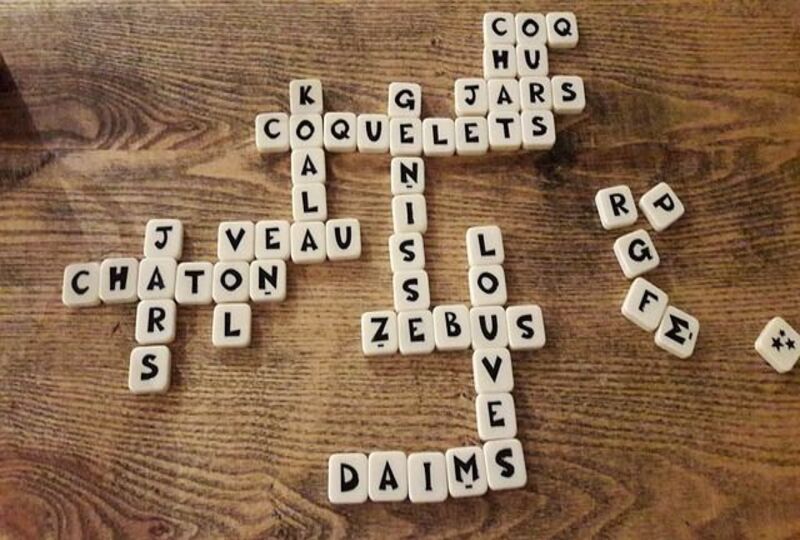
Comparison
There are more than four parts of the world where French is spoken, but now that we've taken a look at four of the main regions, here's a side-by-side comparison of a few words around the world.

Practicing for Each Region
No French learner is expected to memorize the unique French vocab for each region, but it is fun to learn about. It'll give you a break from your usual study routine and make learning French more exciting.
Of course, if you plan on visiting one of the many French-speaking regions in the world, it is certainly worth it to brush up on local vocab and idioms. Whether you're an advanced French learner or just beginning your language learning journey, Speechling can help you prepare for your upcoming travels with its helpful language learning tips and unique online tools.
